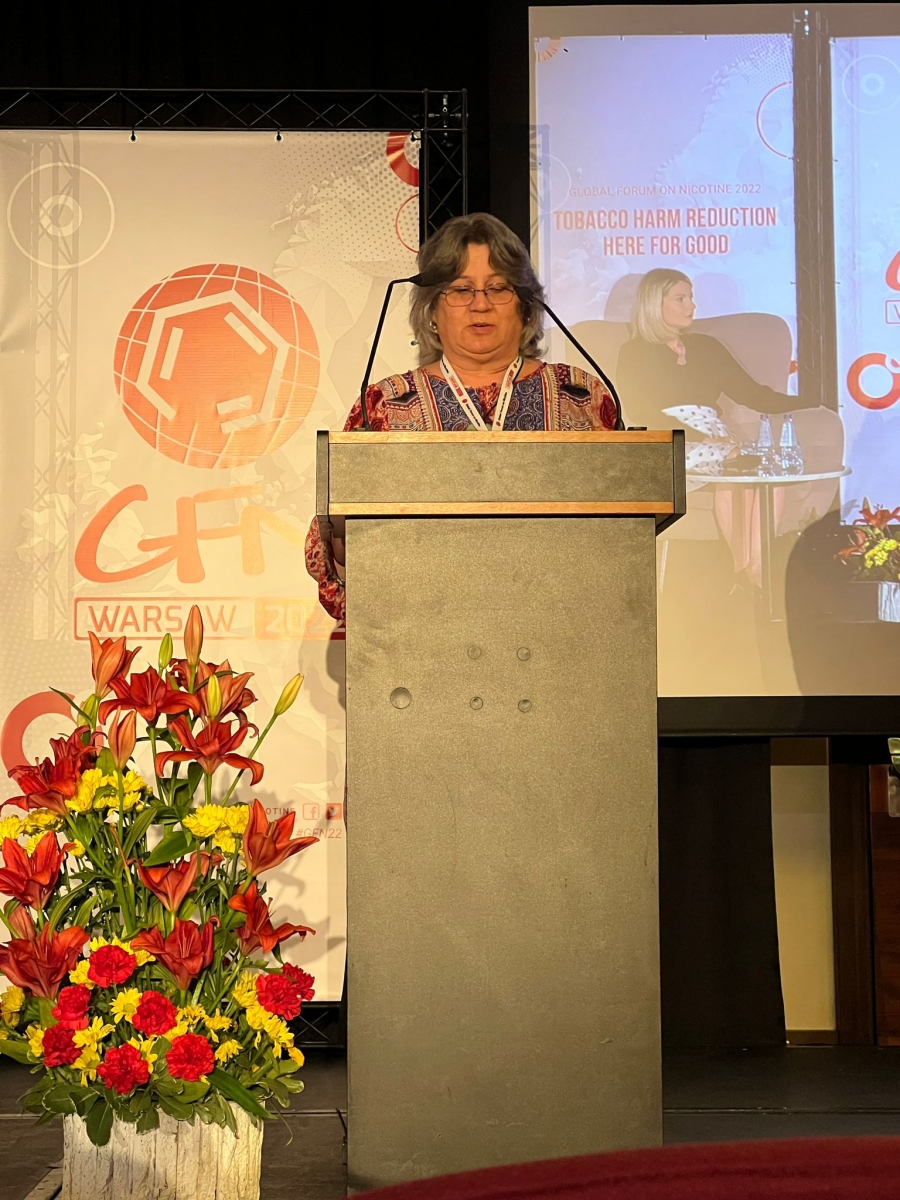Nancy Loucas told attendees that sharing knowledge and resources has been key to successfully winning the THR war in several Asia Pacific countries. The successful regional advocacy model is one she’d now like to see expanded globally, but says it requires everyone leaving their egos at the door and working together for the greater good.
 “Right now, in Asia Pacific… we’re in a paradigm shift. We’re going from a place where’s there are bans, restrictions or no regulation, to a place where countries are starting to consider and implement regulations. If you asked me this two years ago, I would’ve said ‘no that’s not going to happen’, but it’s now happening,” she told attendees.
“Right now, in Asia Pacific… we’re in a paradigm shift. We’re going from a place where’s there are bans, restrictions or no regulation, to a place where countries are starting to consider and implement regulations. If you asked me this two years ago, I would’ve said ‘no that’s not going to happen’, but it’s now happening,” she told attendees.
The different advocates and organisations that make up CAPHRA work closely together, helping each other in the overall quest of creating local solutions to overcome the tobacco pandemic’s local impacts - one country at a time.
By working its networks, both at a policy and political level, CAPHRA has helped countries realise the benefits of regulating safer nicotine products for adult use.
“Key arguments we’ve used include public health – providing adults with options and choice, commerce – supporting small independent businesses, and risk-proportionate excise – to help support government initiatives, particularly post-covid when revenues are down.”
Countries in the Asia Pacific region set to lift their failed vaping bans include the Philippines, Malaysia and Thailand with regulation now imminent. Ms Loucas pointed out that this is great news in a region disproportionately affected by tobacco harm.
“The majority of global health harm and death from smoking and unsafe oral tobacco products occurs in Asia Pacific. Of the 1.1 billion smokers globally, 664 million, or approximately 60% of the world’s smokers, live in the Asia Pacific region.”
She said while the cultural and religious differences may seem vast among the many Asia Pacific countries, their history, influences, and national mindset are similar.
Asia Pacific’s developing countries share many of the same socio-economic issues. They also share a collective mindset where a sense of community and consideration for others takes precedence over the rights of the individual. CAPHRA reflects that mindset in how members work together and advocate - with respect and understanding for each other, she told attendees.
Ms Loucas said unfortunately many developing countries are also targets for foreign philanthropists such as Bloomberg and related NGOs. Big money continues to meddle in Asia Pacific, pushing to develop restrictive policies around safer nicotine products.
“Key to our success is sharing resources such as scientific research, policy papers, advocacy activities, joint submissions, communication, guidance, and support. Regional advocacy enables shared challenges to become shared successes. We support each other with submissions, testimonials, as well as commiseration when required,” she said.
Another aspect key to CAPHRA’s success in recent years was setting up an Expert Advisory Group – consisting of regional experts who understand the local context and are on hand to impart expert local knowledge.
“These are local scientists, researchers, and THR experts available to assist with questions as well as submissions to governments. The Expert Advisory Group has been an invaluable asset to both consumers and policymakers in the region,” said Nancy Loucas
Also at #GFN22, CAPHRA member Asa Saligupta was honoured with the 'Advocate of the Year' award. He is a co-founder and director of End Cigarette Smoking Thailand (ECST).
Over the years, Mr Saligupta has been invited to various international forums to speak on strategies to deal with the tobacco crisis in Thailand. He continues to work tirelessly for pragmatic regulation in Thailand, hopeful it will be in place by the end of the year.
References:
- Coalition of Asia Pacific Tobacco Harm Reduction Advocates - https://caphraorg.net/
Photo Credit:
Photo by Valentyn Chernetskyi on Unsplash
Dave Cross
Journalist at POTVDave is a freelance writer; with articles on music, motorbikes, football, pop-science, vaping and tobacco harm reduction in Sounds, Melody Maker, UBG, AWoL, Bike, When Saturday Comes, Vape News Magazine, and syndicated across the Johnston Press group. He was published in an anthology of “Greatest Football Writing”, but still believes this was a mistake. Dave contributes sketches to comedy shows and used to co-host a radio sketch show. He’s worked with numerous start-ups to develop content for their websites.
Join the discussion
Parliament Fears Two
The Department for Environment, Food and Rural Affairs faced questions from a Conservative MP and, oddly, a member of the Department for Environment, Food and Rural Affairs
Harm Reduction For The Rich
The United Kingdom risks becoming a harm reduction country only for the wealthy, according to Michael Landl of the World Vapers’ Alliance
Sacrificing Health For 2p Cut
Tory Government alienates vaping voters with its mission to cut tax by an unaffordable 2p to attract voters by placing a tax on vape products in the forthcoming budget
CAPHRA Highlights Tobacco Control Flaws
The Coalition of Asia Pacific Tobacco Harm Reduction Advocates highlights the flaws in tobacco control which has led to the rise of black market in Australia











